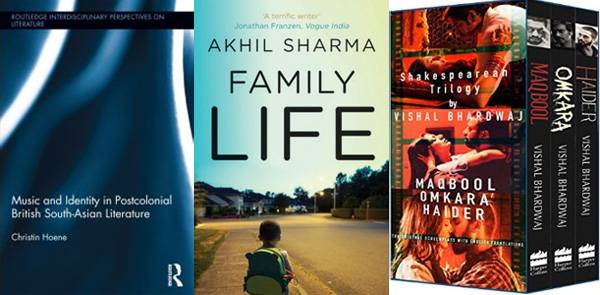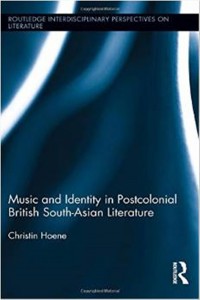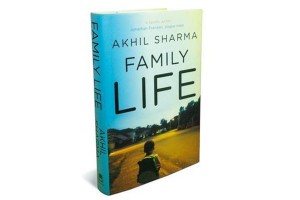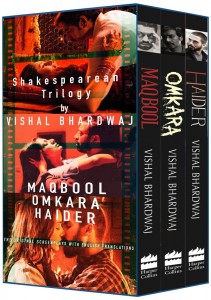
Music and Identity in Postcolonial British South-Asian Literature

Christin Hoene
Routledge [hardback], 2015
PRs 16,000
This book examines the role of music in British-South Asian postcolonial literature, asking how music relates to the construction of postcolonial identity. It focuses on novels that explore the postcolonial condition in India, Pakistan, and the United Kingdom: Vikram Seth’s A Suitable Boy, Amit Chaudhuri’s Afternoon Raag, Suhayl Saadi’s Psychoraag, Hanif Kureishi’s The Buddha of Suburbia and The Black Album, and Salman Rushdie’s The Ground Beneath Her Feet, with reference to other texts, such as E. M. Forster’s A Passage to India and Vikram Seth’s An Equal Music.
The analyzed novels feature different kinds of music, from Indian classical to non-classical traditions, and from Western classical music to pop music and rock ‘n’ roll. Music is depicted as a cultural artifact and as a purely aestheticized art form at the same time. As a cultural artifact, music derives meaning from its sociocultural context of production and serves as a frame of reference to explore postcolonial identities on their own terms. As purely aesthetic art, music escapes its contextual meaning. The transgressive qualities of music render it capable of expressing identities irrespective of origin and politics of location. Thereby, music in the novels marks a very productive space to imagine the postcolonial nation and to rewrite imperial history, to express the cultural hybridity of characters in-between nations, to analyze the state of the nation and life in the multicultural diaspora of contemporary Great Britain, and to explore the ramifications of cultural globalization versus cultural imperialism.
Family Life: A Novel

Akhil Sharma
Hamish Hamilton [hardback], 2014
PRs 995
Winner of the 2015 Folio Prize
Hailed as a “supreme storyteller” (Philadelphia Inquirer) for his “cunning, dismaying and beautifully conceived” fiction (New York Times), Akhil Sharma is possessed of a narrative voice “as hypnotic as those found in the pages of Dostoyevsky” (The Nation). In his highly anticipated second novel, Family Life, he delivers a story of astonishing intensity and emotional precision.
We meet the Mishra family in Delhi in 1978, where eight-year-old Ajay and his older brother Birju play cricket in the streets, waiting for the day when their plane tickets will arrive and they and their mother can fly across the world and join their father in America. America to the Mishras is, indeed, everything they could have imagined and more: when automatic glass doors open before them, they feel that surely they must have been mistaken for somebody important. Pressing an elevator button and the elevator closing its doors and rising, they have a feeling of power at the fact that the elevator is obeying them. Life is extraordinary until tragedy strikes, leaving one brother severely brain-damaged and the other lost and virtually orphaned in a strange land. Ajay, the family’s younger son, prays to a God he envisions as Superman, longing to find his place amid the ruins of his family’s new life. Heart-wrenching and darkly funny, Family Life is a universal story of a boy torn between duty and his own survival.
What people are saying: “Gorgeously tender at its core… Family Life really blazes” (Sonali Deraniyagala, New York Times).
From the book: An elderly black man with gray hair said, “Every bottle should come with a warning: ‘This bottle may cause you to lose your job. This bottle may cause you to get a divorce. This bottle may cause you to become homeless’.”
A Bollywood special
Maqbool – Haider – Omkara: The Original Screenplay with English Translation

Vishal Bhardwaj
HarperCollins [paperback], 2014
PRs 480 each (set of three)
For film buffs, Harper Collins has released a box-set containing the screenplays for Omkara, Maqbool and Haider – Vishal Bhardwaj’s film adaptations of Shakespearean plays. Of all the Bard’s plays, perhaps the most relevant to our times is Macbeth. In Bhardwaj’s scintillating adaptation Maqbool, the Mumbai mafia provides the backdrop for the action. This unforgettable film not only portrays the dark gamut of human emotions, but also serves as a morality tale discriminating wisely between right and wrong, good and evil.
In what is Shakespeare’s Othello transplanted to the badlands of Uttar Pradesh, Omkara is a timeless tale of love, betrayal and jealousy. A jealous ‘Langda’ Tyagi (Saif Ali Khan) betrays Omkara (Ajay Devgan) and sets off a chain of events that end in savage tragedy. The film has unforgettable performances from the cast and a memorable score, including the all-time hit item number ‘Beedi jalai le’, penned by the inimitable Gulzar and set to music by Bhardwaj.
Based on Hamlet, Haider is the third film in this trilogy, co-written with Basharat Peer and directed by Bhardwaj. Shot in Kashmir, the film faced local protests, but was able to finish shooting on schedule. It stars Shahid Kapoor (also the co-producer), Tabu, Shraddha Kapoor, Kay Kay Menon and Irrfan Khan.

